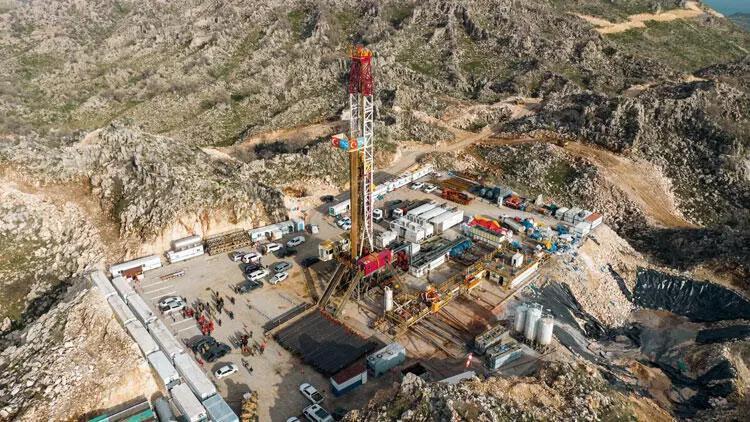
Türkiye is set to initiate three additional drilling operations aimed at bolstering the nation's energy self-sufficiency following significant oil discovery in the southeast region, Energy and Natural Resources Minister Alparslan Bayraktar has unveiled.
"Türkiye needs a few more [oil discoveries like the one in] Gabar," Bayraktar remarked during a televised interview with public broadcaster TRT Haber on Aug. 28, citing the newfound oil reservoir in the country's southeastern frontier area, which was announced by the state oil company TPAO in early May.
The minister hinted at an upcoming drilling venture in the eastern province of Van scheduled for September.
Türkiye's geopolitical location is of utmost importance, with the neighboring countries collectively hosting two-thirds of the world's oil and natural gas reserves, he asserted.
Türkiye's geographic location, surrounded by countries that hold two-thirds of global oil and natural gas reserves, underlines its strategic importance, he asserted, urging TPAO, pipeline company Botaş and the Turkish private sector for active engagement in neighboring regions such as Libya and Iraq.
The expansion of drilling activities is set to encompass regions like the central and eastern Black Sea, Bayraktar revealed. "We have targeted areas in both Ordu and Rize," he elaborated.
Addressing a fundamental policy objective, Bayraktar underscored the pressing need to diminish foreign energy dependency. "Türkiye is 70 percent foreign-dependent in energy," he disclosed. "We import 92 percent of our oil, which amounted to 50 million tons last year, valued at approximately $40 billion in 2022. Our coal imports reached 38 million tons, equating to $9-10 billion."
The minister discussed the shift in policy that took place after 2016, focusing on producing energy domestically and exploring untapped regions within borders. "We developed a fleet of seismic vessels for our own seas," he stated, noting four deep-sea drilling vessels and two seismic ships.
The second part of the policy shift, as explained by the minister, was a focus on unexplored areas within the country's territory. This approach began to yield results in 2020, he proclaimed, hailing the Gabar discovery as the "greatest discovery in the history of the republic."
Bayraktar also provided insights into developments at the site, noting that the land-based nature of the field enabled expedited progress. "We have increased production to 20,000 barrels per day," he revealed, with a future goal of achieving 100,000 barrels daily by 2025.
The minister also touched on recent developments concerning the Iraq-Türkiye crude oil pipeline, which had been halted due to a $1.5 billion arbitration ruling by the International Chamber of Commerce (ICC), following unauthorized oil exports by the Kurdistan regional government from 2014 to 2018.
"Our goal is the prompt reinstatement of operations for the Iraq-Türkiye oil pipeline," Bayraktar affirmed.